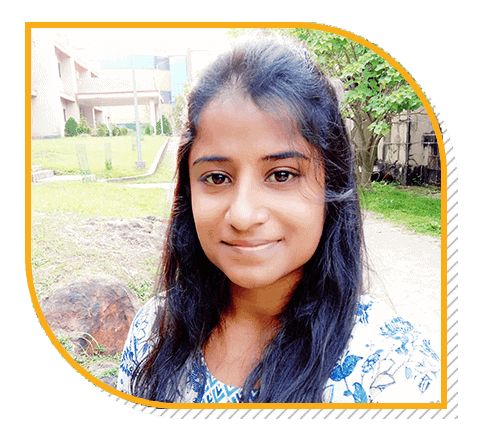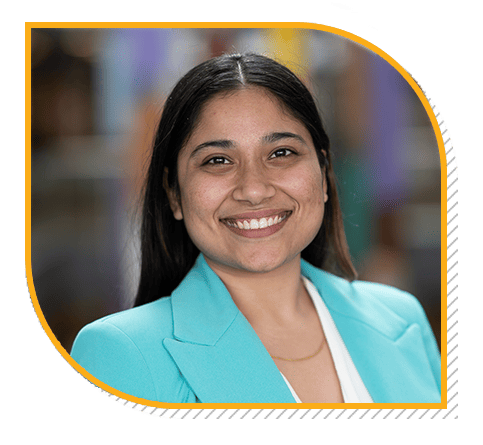Dr Satarupa Dutta is a former member of the TRANSLATE project from Technische Universitat Darmstadt (TUD), and in this blog she reflects on her TRANSLATE journey with Project Officer Abhisweta Bhattacharjee (UCC Academy).
Let’s start with your background and career till date.
My academic journey has been anchored in chemical engineering, culminating in a Ph.D. with a specialised focus on fluid mechanics, particularly electric field-driven microfluidic phenomena. Transitioning into postdoctoral research, I pursued my passion for renewable energy by investigating thermal-driven electricity generation in nanoporous membranes. Throughout my doctoral project, I provided theoretical support to experimentalists, aiding in the optimisation of their setups to advance understanding and application within the field.
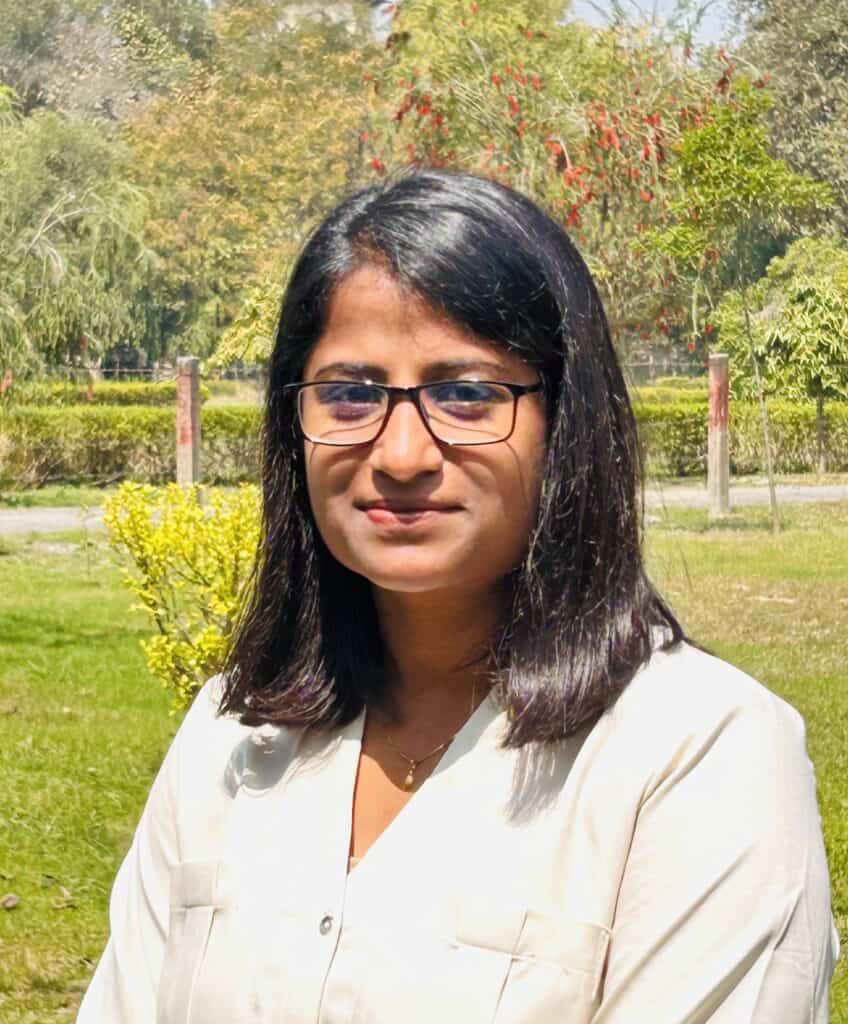
What was your role in TRANSLATE?
In TRANSLATE, my primary role centred around contributing to Work Package One, which focused on the theoretical simulation and modelling of thermal energy harvesters within nanoporous membranes. Specifically, my responsibility involved assisting experimentalists through nonlinear simulations to develop a comprehensive understanding of the thermoelectricity generation process within nanoporous membranes. With a thorough grasp of the fundamental principles at play, we proceeded to optimise operating parameters to maximise energy conversion efficiency.
What excited you about the project?
My doctoral dissertation delved into field-driven microfluidic phenomena, specifically focusing on electric field-driven phenomena. Throughout my PhD journey, I harboured a strong desire to contribute to the field of energy generation, recognising the pressing need for efficient and clean energy sources amidst the global energy crisis. When I stumbled upon TRANSLATE and learned about its mission to harness waste heat to generate electricity from simple solutions, I was instantly drawn in. The project’s alignment with my interests and expertise felt like a perfect fit, and I knew right away that this was where I wanted to channel my next adventure!
Does a specific challenge come to your mind that you faced in your journey within TRANSLATE? How did you overcome it?
In the realm of scientific exploration, encountering obstacles is not just common, it’s a sign that you’re truly delving into the depths of your subject matter. One major hurdle we’ve been contending with, and it’s an ongoing battle, is the efficient application of thermal gradients in our experiments. Now, theoretically, as a modeler, I can tweak parameters on my computer and get results. But when it comes to collaborating with experimentalists, things get a bit trickier. Take, for instance, the simple task of applying a 20-degree temperature difference across a channel. In simulation it seems straightforward. However, our experimental counterparts have been struggling to maintain that temperature difference across the channel due to heat escaping through the membrane walls rather than the pores themselves. This discrepancy between theory and practice has thwarted our efforts to achieve the desired voltage due to the confined effect of nanopores. While experimentalists face hurdles in realising theoretical predictions in practice, us theoreticians grapple with the computational demands of simulating real-world scenarios. So, you see, it’s a delicate dance between theory and practice, and our greatest challenge thus far has been finding that sweet spot where theory meets reality, particularly in efficiently applying thermal gradients in our experiments.
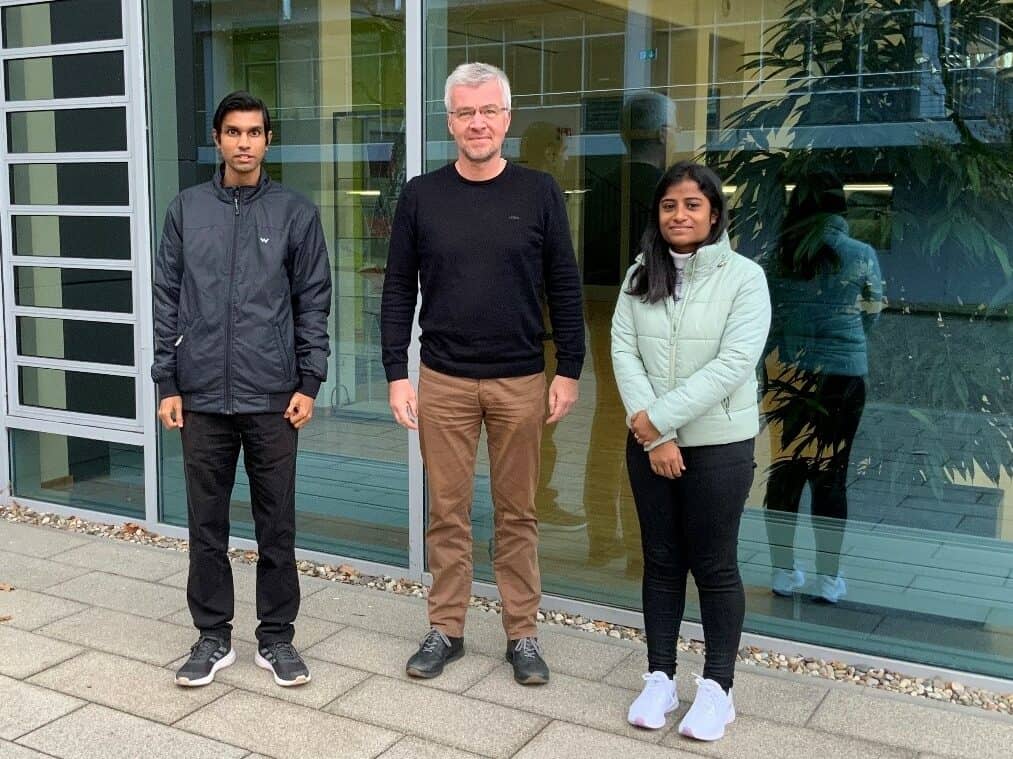
What valuable lesson did these obstacles teach you? Or was this something you always expected and focused on coming through?
Certainly, theory often simplifies complex systems for practical simulation. For instance, in modelling membranes with numerous pores, we typically generalise their behaviour based on representative characteristics to conserve computational resources. However, translating theory into practice reveals unexpected challenges, which has been a big lesson. For example, efficiently applying a temperature difference across a pore can be surprisingly difficult. Even when that is successful, discerning the nature of resulting electricity—whether from bulk effects or confinement effects—remains elusive. This gap between theory and experimentation underscores the intricate process of translating concepts into reality.
Did your experience in translate in any way contribute to your personal or professional growth?
Absolutely. Every job and interaction is a learning experience. Engaging with talented individuals across diverse fields within TRANSLATE has broadened my horizons. Discovering the potential of generating electricity through methods like membranes and saltwater was something I had never imagined. Interactions in Latvia with researchers sparked numerous ideas. Now, as an independent PI, I draw inspiration from TRANSLATE, shaping unrelated ideas with its foundational principles. These experiences have not only influenced my future research but also fostered personal growth, especially my time with the TRANSLATE team in Germany.
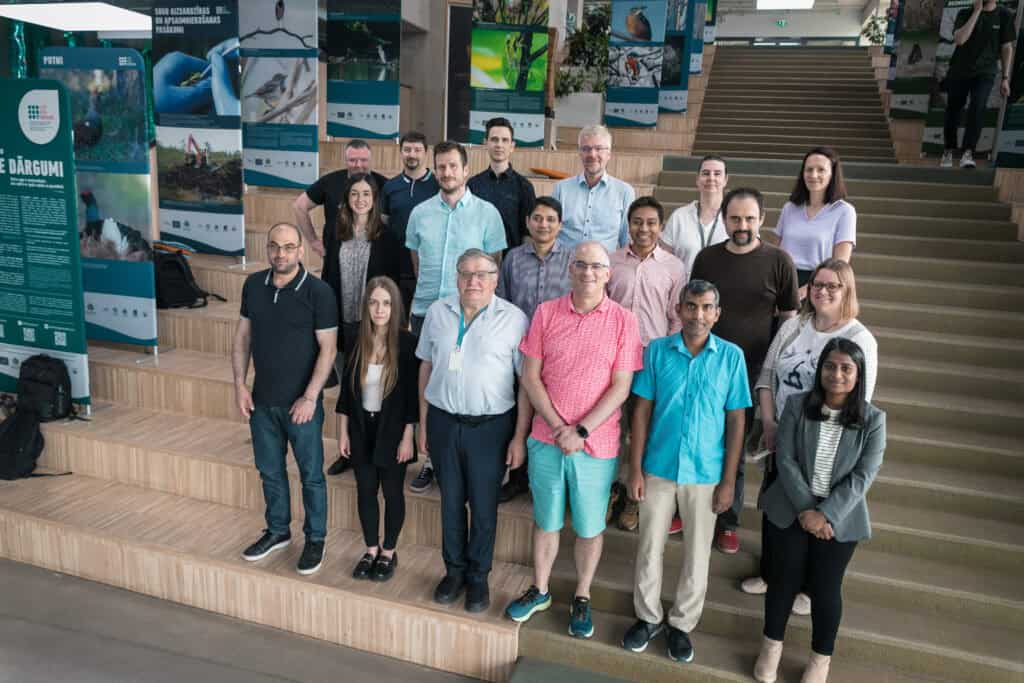
Would you like to expand on anything that stood out to you while working in the TRANSLATE project?
The collaborative structure of the TRANSLATE project was a standout experience for me, unrelated to research. Unlike my previous work, which mainly involved collaboration within my own lab, TRANSLATE brought together four institutes, each contributing to different aspects. Witnessing specialised groups cohesively tackle tasks like membrane preparation, cell optimisation, theoretical work, characterisation, and eventual productisation was enlightening. I found immense value in the diverse perspectives and expertise brought by each group. This collaborative model is something I aim to emulate in my future research. Monthly meetings served as valuable platforms for knowledge exchange, sparking fruitful discussions. Despite disagreements, the overall learning experience was enriching. While there’s room for improvement, I commend the work of each group and am grateful for the opportunity to have been part of this project.
Additionally, on the research side, delving into iontronics was a significant learning experience. Exploring this field’s potential for novel and innovative applications was eye-opening, and I’m excited to further explore its dimensions in my future work. Additionally, prior to this project, I had limited knowledge about membranes, their measurements and their applications, which I gained from the UCC group.
Finally, is there a personal experience that you will always remember fondly?
I’m unable to choose just one experience from my journey with TRANSLATE. Over the past 2.7 years in Darmstadt, being a part of this project has been incredibly enriching and beneficial for my personal growth as a researcher. As I transition into the role of an independent PI, I can confidently say that my experience with TRANSLATE has been nothing short of invaluable.
Any final thoughts as we wrap it up?
I extend my heartfelt best wishes to all the partners of TRANSLATE. May we swiftly achieve our objectives and deliver on the promises made within the project. Let’s strive to make a meaningful impact in the field and contribute to advancements in science and technology.

